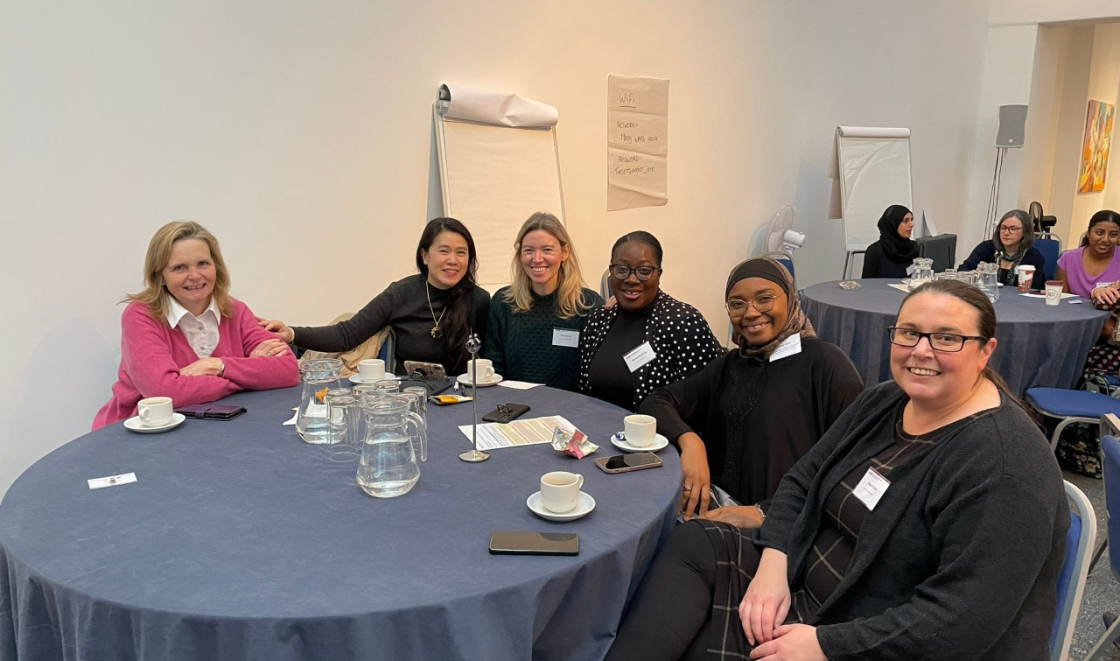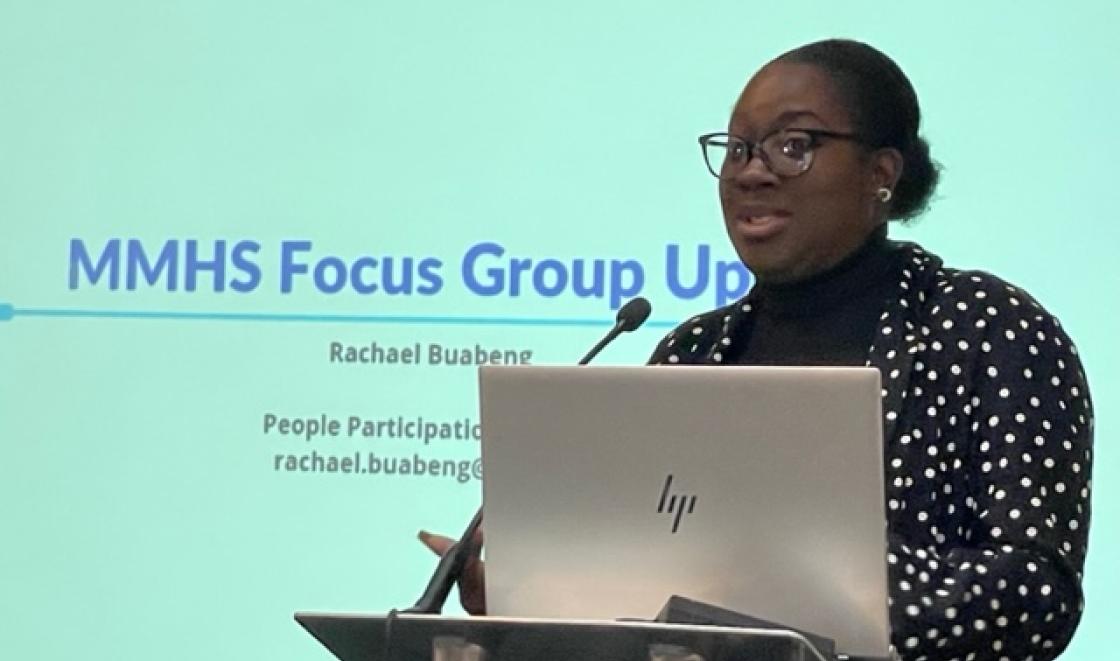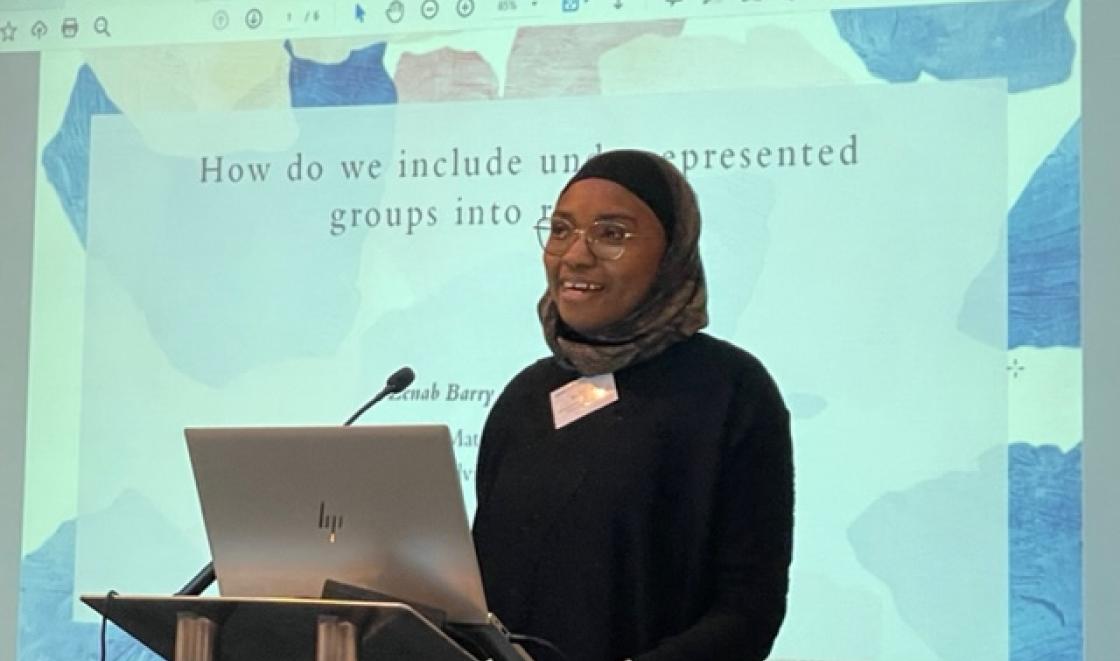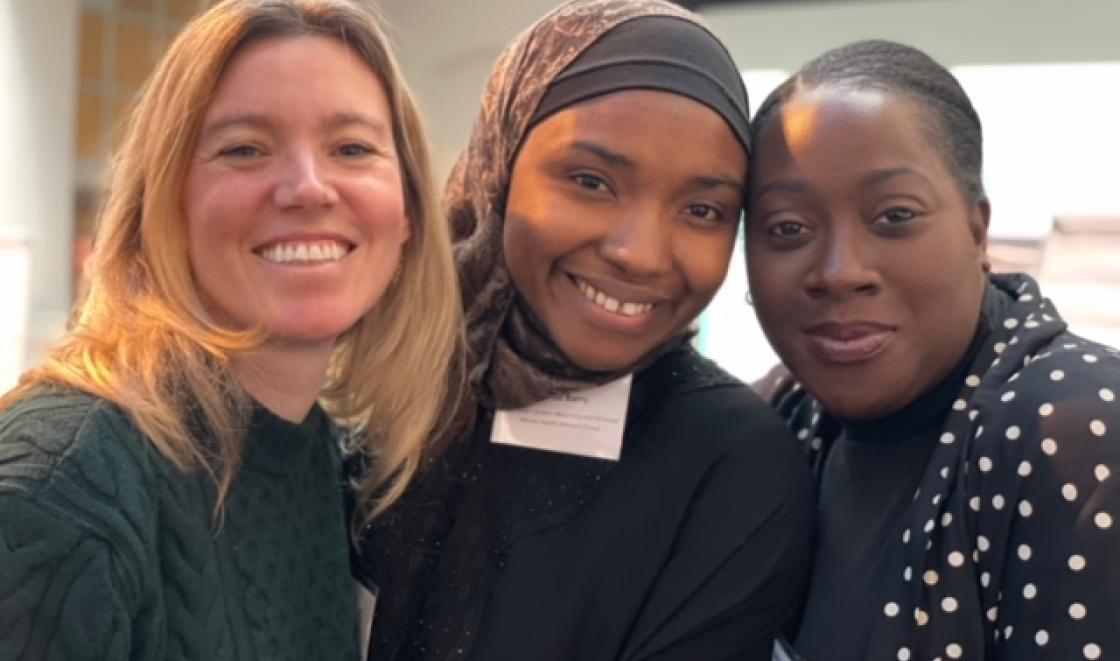The second project was RIVA, a study evaluating models of health-based Independent Domestic Violence Advocates, presented by Dr Kylee Trevillion and Dr Jill Domoney both from King’s College London. Other prioritised studies were BRUSH - optimising toothbrushing programmes in nurseries and schools, a collaborative project with NIHR ARC Yorkshire & Humber, the Bradford Institute of Health Research and the Universities of Leeds and Sheffield, and ADaPT - Trauma focussed Cognitive Behavioural Therapy for Children in care, a pilot implementation project.
The afternoon was made up of 10-minute talks. Zenab Barry, ARC South London -maternity and perinatal mental health advisory group member, gave a warmly received presentation on how to include underrepresented groups into research.



